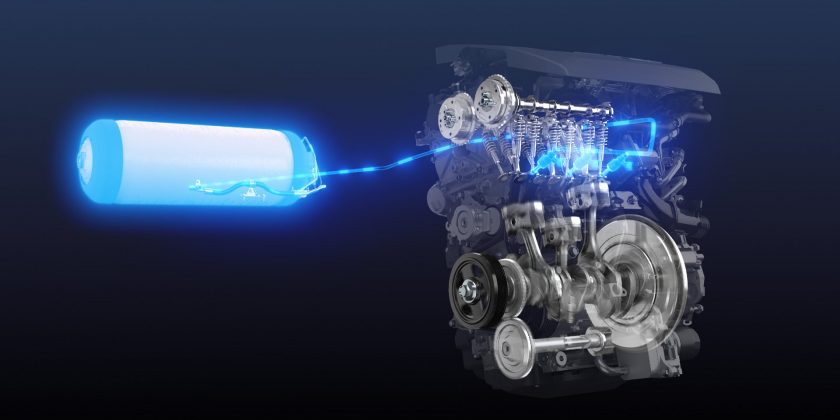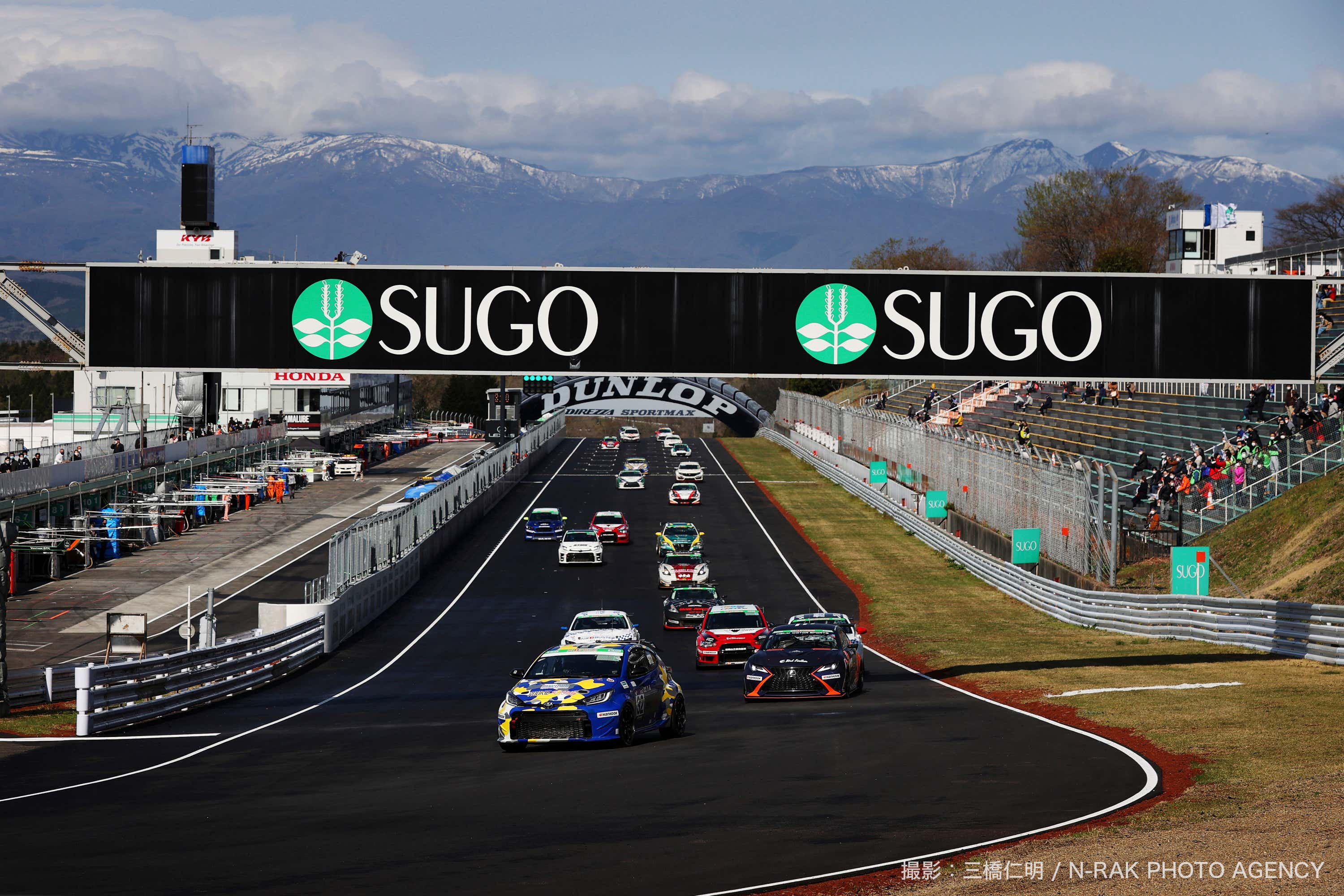Ah, hydrogen. Lots of people out there who love combustion see its potential to preserve the concept of engines in an increasingly electric world. Toyota has been going really hard on it for a good bit now, both for fuel cells and the brand’s occasional rumbles about keeping the fires of combustion stoked. This, though, is a big move from Toyota to develop it, not just in a lab but on the track in a 24-hour race.
The car it developed is a modified Corolla Sport with a turbocharged three-cylinder. Impressively, it will be entered in the Super Taikyu Series’ 24-hour event at Fuji, from May 21-23 this year. That’s a big chance to take, especially for an endurance race, so you have to respect Toyota’s enthusiasm to drive itself straight into a really tough challenge.
A Super Taikyu Series race
What’s good about hydrogen combustion, if you were wondering, is that it sort of provides the miracle solution. It’s burning stuff in an engine but it produces no carbon dioxide, aside from—as Toyota is fair to admit—a very small amount caused by oil burn. It’s easy to refuel, pretty much like a regular gas-powered car, except that the fuel tank needs to be more rigid (due to hydrogen’s instability), but then you’re ready to get going. It’s even possible to make a more responsive engine due to hydrogen’s sheer reactivity.
Something the press release very much fails to mention is that hydrogen combustion is an underdeveloped technology for good reasons. For a start, the energy efficiency is as low as 20 percent, which is exacerbated by the fact hydrogen’s really annoying to make and even worse to store. Comparatively, fuel cell electric vehicles can get 60 percent of the energy used to make the hydrogen by green electrolysis back out, which makes them the obvious choice to use scant-supply H2 in, given all the other issues like production and storage are the same.
Additionally, although the byproducts listed by Toyota aren’t untrue—there isn’t any CO2 created by the process—burning hydrogen does still produce greenhouse gas and air pollutant nitrous oxide. You might remember nitrous oxide emissions from the small automotive scandal Dieselgate, so it would probably befit Toyota not to downplay that part.
The hydrogen for this project will be sourced from Fukushima Hydrogen Energy Research Field and Toyota is keen to emphasize this is something it’s doing to push forward H2 combustion engines but not giving up on the fuel cells it’s spent ages being one of the main champions of.
Got a story tip? Mail me on [email protected]
RELATED
The Ineos Grenadier 4×4 Might Run on Hydrogen Thanks to Hyundai
A new partnership between the two powerhouses might deliver an extremely efficient off-roader.READ NOW
RELATED
Your Future Hydrogen Fuel-Cell Car Might Just Have a Roots Supercharger
Looks like the ol' roots blower has found new life.READ NOW
RELATED
Why We Still Can't Deliver on the Promise of Hydrogen Cars
2020 is a big year for battery EVs, but there are many reasons hydrogen fuel cells will never live up to their promise.READ NOW
Source: Read Full Article

